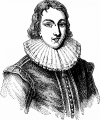Johannes V

Jensen was a renowned Danish author and Nobel laureate in Literature, known for his significant contributions to the literary world through his compelling novels and profound writings. In this in-depth article, we will delve into the world of . Jensen’s books and explore their historical development, key features, and their significance for art lovers and collectors. Whether you are a seasoned enthusiast or a curious reader, this article aims to provide you with comprehensive insights into the remarkable works of Johannes V. Jensen.
Introduction to Johannes V. Jensen’s Books:
Johannes V. Jensen’s books encompass a diverse range of themes, styles, and genres, captivating readers with his unique storytelling abilities. His writings reflect a deep understanding of human nature, the complexities of existence, and philosophical inquiries. With an emphasis on vivid imagery, lyrical language, and rich characterization, Jensen’s books transport readers to captivating realms where the boundaries between reality and imagination blur. Whether exploring historical events, cultural paradigms, or addressing existential questions, Jensen’s books are characterized by their intellectual depth and emotional intensity.
Historical Development of Johannes V. Jensen’s Books:

The evolution of Johannes V. Jensen’s books is a testament to his literary prowess and his ability to adapt to the changing times. Beginnings in the early 20th century, Jensen gained recognition for his early works such as “The Fall of the King” (1901-1902), a historical novel that explored the decline of medieval society. This marked the beginning of a career that would span several decades, during which Jensen continued to write prolifically and experiment with different genres.
In the subsequent years, Jensen’s writings took a more philosophical turn, exemplified by his masterpiece “The Long Journey” (1908-1922). Here, he delved into themes of human existence, spirituality, and the search for meaning in life. This epic work, spanning eight volumes, showcases Jensen’s ability to intricately weave philosophical ideas into a compelling narrative.
During the 1920s and 1930s, Jensen shifted his focus to scientific literature, combining his interests in natural history and anthropology. His “Myth and Revelation in the Sonnets of Shakespeare” (1939) and “The Island of the Great Mother” (1948) are prime examples of his ability to merge scientific research with captivating storytelling.
Jensen’s later works, such as “The Fall of the Titans” (1943-1944) and “The Perfect Human” (1946-1952), continued to explore themes of human existence and the interplay between science and spirituality. These books demonstrate Jensen’s evolution as an author, as he incorporated his thoughts on existentialism, evolution, and the human condition into his writings.
Johannes V. Jensen’s Books as Artistic Treasures:
For art lovers and collectors, Johannes V. Jensen’s books hold a special allure. Known for their exquisite cover designs, intricately illustrated pages, and luxurious printing, these books have become coveted collectibles. Artisans, such as Agnes Olesen, who collaborated closely with Jensen, played an instrumental role in creating visually stunning editions, making them not just literary works but also aesthetic gems.
The allure of Jensen’s books lies not only in their external beauty but also in their intellectual and cultural significance. Jensen’s exploration of profound human experiences, the complexities of existence, and philosophical depth make his books cherished artistic treasures that resonate with discerning collectors and admirers of fine literature.
In conclusion, Johannes V. Jensen’s books stand as remarkable literary achievements, showcasing his profound understanding of human nature, thought-provoking ideas, and exceptional storytelling abilities. This article has provided a compelling overview of Jensen’s books, their historical development, and their significance for art lovers and collectors. Whether you are drawn to their intellectual depth, aesthetic appeal, or captivating narratives, exploring the works of Johannes V. Jensen is an enriching experience that will undoubtedly leave a lasting impression.
FAQ
What are some key features of Johannes V. Jensens books?
How did Johannes V. Jensens books evolve over time?
Why are Johannes V. Jensens books prized by art lovers and collectors?
Flere Nyheder
Saxofonist med dj: energi til bryllupper og klubnætter
Jensen was a renowned Danish author and Nobel laureate in Literature, known for his significant contributions to the literary world through his compelling novels and profound writings. In this in-depth article, we will delve into the world of . Jense...
06 november 2025
Den perfekte bryllupsfotograf til din store dag
Jensen was a renowned Danish author and Nobel laureate in Literature, known for his significant contributions to the literary world through his compelling novels and profound writings. In this in-depth article, we will delve into the world of . Jense...
30 oktober 2025
Hvordan du finder kunstprojekter i dit lokalområde
Jensen was a renowned Danish author and Nobel laureate in Literature, known for his significant contributions to the literary world through his compelling novels and profound writings. In this in-depth article, we will delve into the world of . Jense...
02 oktober 2025
Symbolik i klassisk og moderne billedkunst
Jensen was a renowned Danish author and Nobel laureate in Literature, known for his significant contributions to the literary world through his compelling novels and profound writings. In this in-depth article, we will delve into the world of . Jense...
02 oktober 2025











